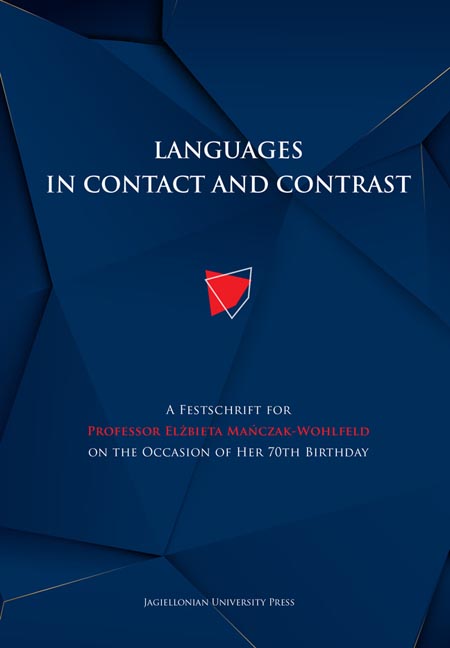 Languages in Contact and Contrast
Languages in Contact and Contrast Published online by Cambridge University Press: 14 October 2023
Introduction
The scholarly field of contact linguistics was launched with two ground-breaking studies in the 1950s: Weinreich’s (1953) analysis of the linguistic systems of Swiss bilingual speakers and Haugen’s (1953/1969) study of Norwegian spoken by immigrants to the United States. Since then, the field has come to encompass the study of both individual and societal bi-/ multilingualism and to consider the situational and long-term effects of language contact through empirical studies of phenomena such as code-switching and borrowing (Clyne 1972, 2003; Matras 2009). Traditionally, studies of borrowing have been concerned with close-contact situations, set for instance in contexts where groups of immigrants interact with speakers of a majority language, such as the Norwegian spoken by immigrants in the United States (Haugen 1950, 1953/1969) or in officially bilingual communities such as Belgium or Canada. More recently, borrowing has been studied also in remote-contact situations, and most notable within this strand of research are perhaps studies of the effect of English on the lexicon of most of the world’s languages. In fact, such research on the ‘anglicisation’ of lexis has flourished in the last two or three decades, as seen through a range of scientific contributions on anglicisms, including dictionaries (e.g., Carstensen and Busse 1993–1996; Graedler and Johansson 1997; Görlach 2001; see Pulcini et al. 2012 for an overview), monographs (Pfitzner 1978; Graedler 1998; Plümer 2000; Prćić 2005/2011; Onysko 2007) and collective volumes (Fischer and Pułaczewska 2008; Furiassi et al. 2012; Furiassi and Gottlieb 2015). There have also been series of seminars and panels at conferences (ESSE 2010, 2012, 2014; IPrA 2015; LCTG 2017), and a global research network on anglicisms, known as GLAD, has recently been established. Within the context of GLAD the accumulated production of research on anglicisms is amply documented in the list of publications. To take one example, for a language such as Polish, the work of Elżbieta Mańczak-Wohlfeld is especially notable, with some eighty research contributions.
A significant trend in recent anglicism research is a shift in focus from the individual lexeme (word or term, in general or domain-specific contexts) towards longer units of discourse, most notably multiword expressions and phraseology.
To save this book to your Kindle, first ensure [email protected] is added to your Approved Personal Document E-mail List under your Personal Document Settings on the Manage Your Content and Devices page of your Amazon account. Then enter the ‘name’ part of your Kindle email address below. Find out more about saving to your Kindle.
Note you can select to save to either the @free.kindle.com or @kindle.com variations. ‘@free.kindle.com’ emails are free but can only be saved to your device when it is connected to wi-fi. ‘@kindle.com’ emails can be delivered even when you are not connected to wi-fi, but note that service fees apply.
Find out more about the Kindle Personal Document Service.
To save content items to your account, please confirm that you agree to abide by our usage policies. If this is the first time you use this feature, you will be asked to authorise Cambridge Core to connect with your account. Find out more about saving content to Dropbox.
To save content items to your account, please confirm that you agree to abide by our usage policies. If this is the first time you use this feature, you will be asked to authorise Cambridge Core to connect with your account. Find out more about saving content to Google Drive.